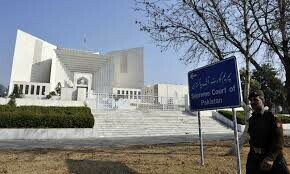
In the eyes of many scholars, Mushtaq Ahmed Yousufi was the Mark Twain of Urdu literature. Others termed the latter half of the 20th century as the Yousufi era of Urdu literature (hum mizah ke daur-i-Yousufi mein ji rahey hain). And almost all of Yousufi’s readers believed he was the greatest humorist of the subcontinent ever. None of the claims would be easy to refute.
Yousufi’s prose had it all: rib-tickling humour, acerbic satire and the Urdu language laced with idiomatic idiosyncrasies steeped in tradition.
Mushtaq Ahmed Yousufi was born in Tonk, India, on Sept 4, 1923. He did his schooling from his native town and obtained a master’s degree in philosophy along with an LLB from Aligarh University. His family migrated to Pakistan after partition, and in the early 1950s Yousufi embarked on a career in banking.
He remained in the banking sector for a long period of his professional life. His last banking assignment was with the now dissolved Bank of Credit and Commerce International in London, which was established by the late Agha Hasan Abedi.
Yousufi’s first major piece of writing Chiragh Taley hit the bookstands in 1961. The book, with its razor-sharp satire and subtle humour, achieved critical acclaim and commercial success in equal measure. Readers of Urdu literature loved and enjoyed the way the writer used seemingly perfunctory aspects of life and imparted a unique and sudden twist to their occurrence.
It took him eight years to pen another work of humour titled Khakam Badahan, a collection of sketches and articles. It also met with great success and to date more than 20 editions of Khakam Badahan have been published.
Zarguzisht, a nostalgic account peppered with witty one-liners and anecdotes, was published in 1976. It is often hailed as Yousufi’s best work.
It was in 1990 that Yousufi’s Aab-i-Gumm was published. It became one of the most popular, if not the most popular, Urdu books of that decade. The book, dedicated to his children, contained five hilarious but profound articles, preceded by a foreword written by the author himself.
Shaam-i-Sher-Yaaran was the writer’s last published work. Though the book’s launch was held with a great deal of fanfare, it didn’t manage to earn too many favourable reviews.
Apart from that, Yousufi wrote many essays and articles, mainly drawing caricatures with words of some of the distinguished personalities that he came across in life. He was awarded the Sitara-i-Imtiaz and a Hilal-i-Imtiaz by the government of Pakistan, besides two Adamjee and numerous other awards.
Yousufi created an alter ego in his books by the name of Mirza Wudood Baig. It is one of the most famous characters in Urdu literature. He loved the Urdu language. In one of his rare television interviews given to Naeem Bukhari before the satellite TV invasion, Yousufi amused, and in certain cases, bemused the host.
When Bukhari asked him why he tended to choose difficult sounding titles for his books, the writer replied that Urdu wasn’t his mother tongue; therefore he needed to be careful with it [choosing correct words and phrases, and pronouncing them right].
The following is one of the oft-quoted lines by Mushtaq Ahmed Yousufi:
Angrezon ka wateera hai ke kisi imarat ko us waqt tak khatir mein nahin laate jab tak ke woh khandar na ho jaye… isi tarha hamare haan baaz mohtaat hazraat kisi ke huq mein kalma-i-khair kehna rawa nahin samajhte tawaqte keh mamdooh ka chehlum na ho jaye…
(Westerners never take a shine to a building unless it is in ruins. Similarly, some of us never praise anyone till 40 days after his death.)
Published in Dawn, June 21st, 2018














































